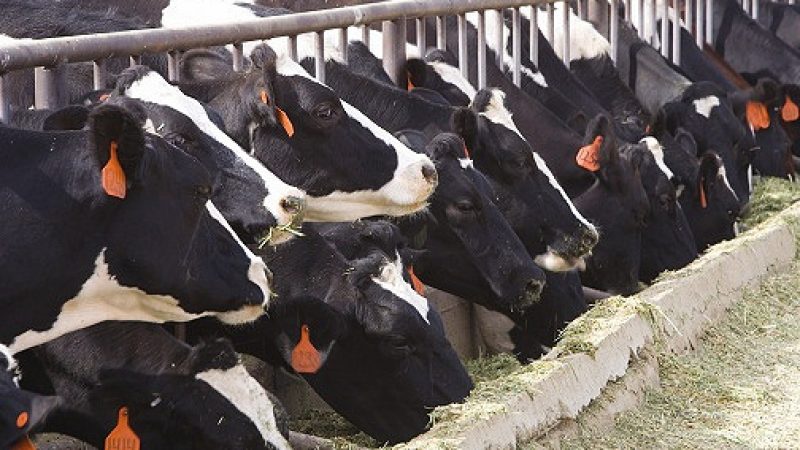Arguments before the state Supreme Court yesterday on cases determining DNR’s authority to protect water from manure pollution largely centered around the definition of the word “explicit” in statute.
In the first suit, Kinnard Farms, a Kewaunee County mega-dairy farm with about 8,200 cows, argued the DNR didn’t have authority to impose offsite well monitoring or limits on its cow population as a means to regulate groundwater pollution. It said neither of the methods were explicitly mentioned in statute or rules.
Former GOP Gov. Scott Walker in 2011 signed into law Act 21, which says no government agencies may enforce any standards unless the threshold is “explicitly” permitted by statute or promulgated rules.
Jordan Hemaidan, an attorney appearing on behalf of Kinnard Farms, read aloud the Merriam-Webster Dictionary definition of “explicit” and argued the language in Act 21 clearly states DNR, or any other agency, could no longer impose thresholds without first going through the rulemaking process.
“They have the authority, but it’s how they administer the authority,” he said, arguing DNR failed to first go through the proper rulemaking process. “What we don’t want happening is what happened here. It’s clear DNR issued these requirements in a problematic way.”
Justice Rebecca Dallet, one of the court’s three liberals, questioned Hemaidan’s and the GOP-controlled Legislature’s interpretation. She noted agencies don’t have rules on the books for most federal regulations and asked if DNR would first have to go through the rulemaking process, which can take years, before enforcing any standard already required by the federal government.
Attorney Eric McLeod, representing the Legislature, said it would unless the regulation had already been expressly permitted by lawmakers in statute.
But Andrea Gelatt, appearing for Clean Wisconsin, accused Republican lawmakers and Kinnard Farms of attempting to “add additional meanings” of explicit to the definitions already understood by the courts.
She said the word “explicit” leaves room for interpretation so long as statute or rules give authority to regulate. For example, DNR according to Gelatt has the explicit power to grant permits to farms, and it can then interpret the regulation of those permits to include groundwater monitoring or limits on the number of cows.
“I think a better reading of the statute, in context with regulatory programs, is that explicit can also mean broad,” Gelatt said.
In the second hearing, which centered on DNR’s authority to issue well permits, debate focused both on interpretations of Act 21 and also the Wisconsin Constitution’s public trust doctrine requiring the state to care for its waterways.
Attorneys on behalf of the Legislature and business groups argued the state constitution does require public trust water protections, but that power ultimately rests in the legislative branch of government instead of executive agencies. And they said lawmakers under Act 21 took some of that authority back from DNR.
Justice Rebecca Bradley, one of the court’s four conservatives, agreed lawmakers were entrusted with the public trust responsibility. But she added she felt the Legislature clearly ceded some of that authority to DNR when establishing the agency.
“Are you challenging the Legislature’s ability to claw back authority delegated to agencies?” Bradley asked the environmental groups in regards to Act 21 and public trust.
Carl Sinderbrand, an attorney for Pleasant Lake Management District, warned such debate could cause “a constitutional issue” if DNR were to lose its public trust authority. He argued the doctrine not only gives the government power to protect waterways but actively requires it.
“It raises the question, in whom has it vested public trust authority if not DNR?” he asked. “If the Legislature has not delegated to DNR or someone else instead, then we have a constitutional issue. My perspective is we don’t have an issue because the Legislature has delegated it to DNR.”
But Bradley said lawmakers under Act 21 have “reclaimed” some of that authority, meaning the responsibility of public trust again goes to lawmakers and the question then becomes if the GOP-controlled branch has fulfilled its obligations.
Sinderbrand disagreed since he said DNR should still have public trust power. He called it “a troubling issue” that the other side in the suit would even suggest otherwise.
See the Friday story with background on the case here.



